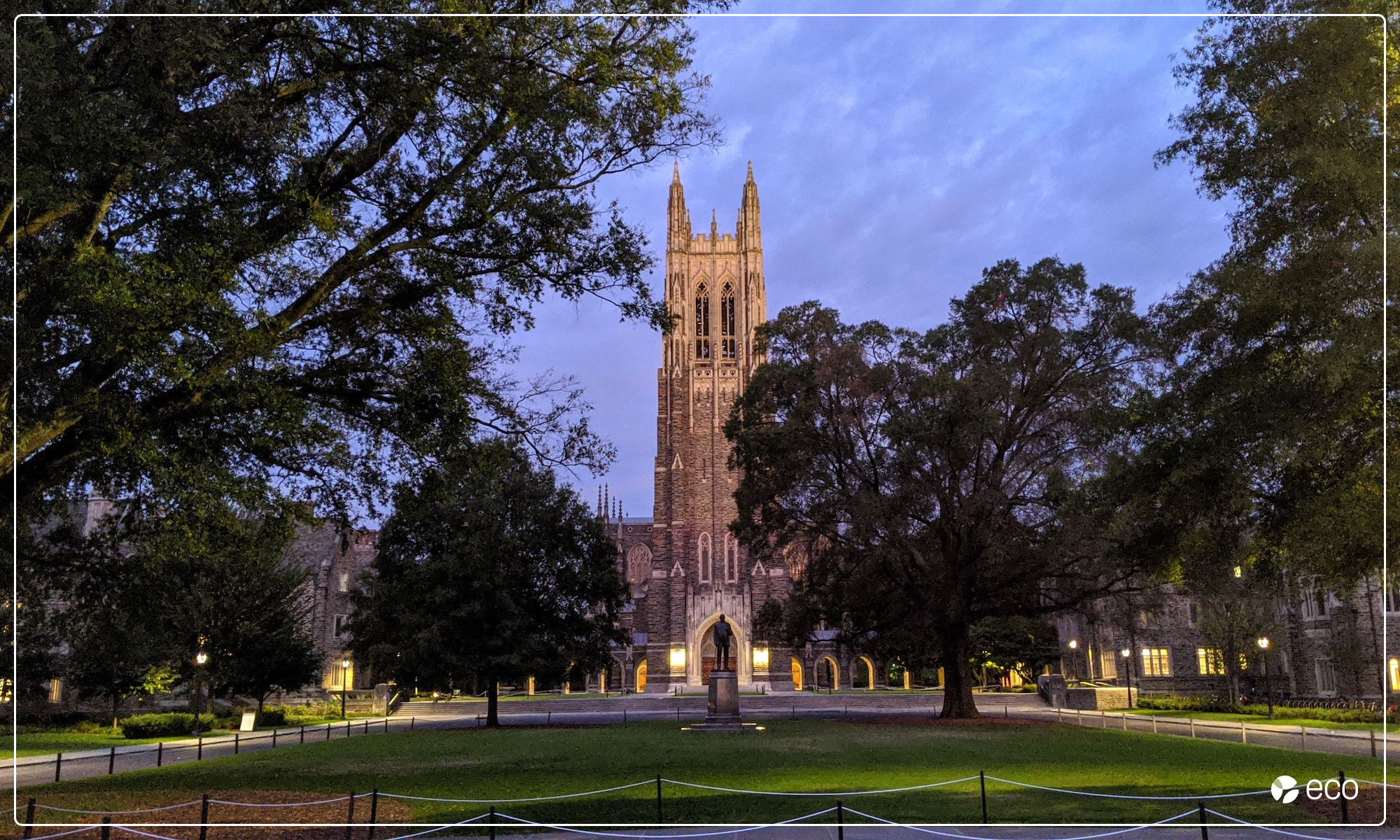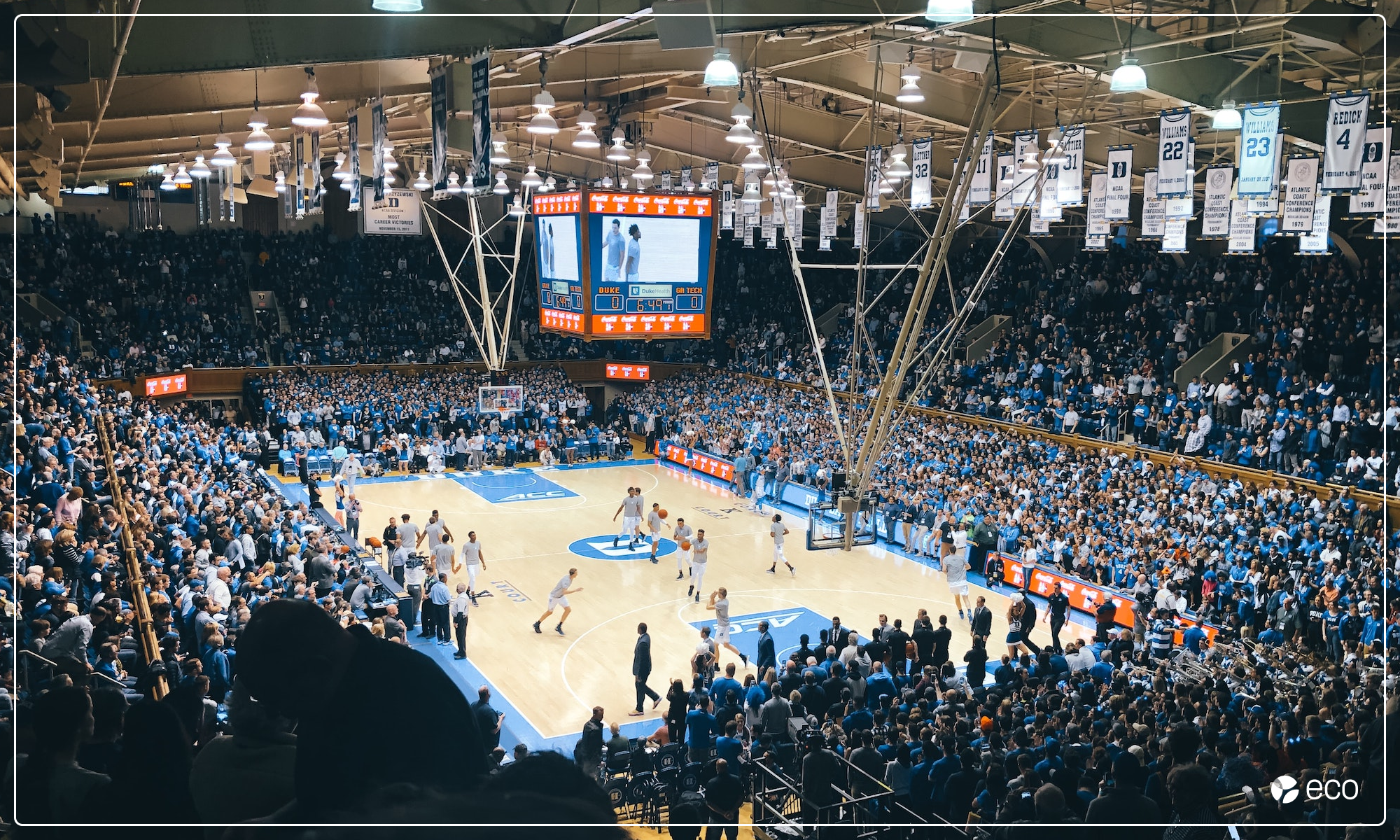The predictably irrational behavior of economics—and basketball
One of the most astonishing examples of the endowment effect occurs on the Duke University campus every year. It's a lesson in patience—and economics.

One of the most astonishing examples of the endowment effect occurs on the Duke University campus every year. The school’s storied basketball program has created an infeasible ticket demand—especially since the stadium no longer suits the student population, nor the tenacity of fans.
That’s how school administrators like it, writes Duke psychology and behavioral economics professor, Dan Ariely, in his book, Predictably Irrational: The Hidden Forces That Shape Our Decisions. Instead of a first-come, first-serve process of filling seats, the university has a longstanding tradition of…making students wait in an exceptionally long line.
As if the ticket-purchasing process isn’t mind-boggling enough, the value students assign to tickets is even more enlightening. But first, the lottery.

Endowed with patience
Before the spring semester even begins, Duke students pitch tents outside the stadium. Early campers line up first in Krzyzewskiville, the “village” named for former basketball coach, Mike Krzyzewski, who ended his 42-year tenure at Duke in 2022 with a 1,202-368 record. Each tent holds up to 10 students, and random air horn blasts mean that at least one member of each tent rushes to check in within five minutes—or else the entire tent gets bumped to the end of the line.
Forty-eight hours before a game begins, check-ins become personal; every student has to state their presence. This ritual continues through the semester, but for national title games, being at the front of the line doesn’t guarantee entry. Instead, you get a lottery number.

So for all that waiting, the most diehard fans at the front of the line find themselves out of luck when the winning numbers are posted at the student center.
The strangeness of this ticketing process has not evolved a bit since Ariely studied this phenomenon in 1994, though not in more rational ways. Undergrad students now wait on line while graduate and professional students are required to partake in a week-long campout. Whereas students experience a university sports-equivalent of Burning Man, however, Ariely saw an opportunity to study human behavior.

The price of a ticket is...relative
Here’s the question Ariely posed with his research partner, Ziv Carmon:
Would the students who had won tickets—who had ownership of tickets—value those tickets more than the students who had not won them even though they all ‘worked’ equally hard to obtain them?
Ariely knew Daniel Kahneman, Jack Knetsch, and Richard Thaler’s work on the endowment effect well. Could it be applied to eager students wanting to watch their school’s athletic heroes in action?
Ariely and Carmon obtained a list of winners and losers. Then they called them. If the lucky student had obtained a ticket, they asked the price they’d be willing to sell it for. If they weren’t lucky, they claimed to have a ticket and asked the highest amount they’d pay for it. If classical economics worked, the two numbers should line up relatively well.
But classical economics doesn’t consider human irrationality. Students in need of a ticket were willing to pay, on average, $175 for a ticket. But for those selling their ticket? The averaged request was $2,400.
It was an emotional chasm that was formed, between those who now imagined the glory of the game, and those who imagined what else they could buy with the price of the ticket. And it was an empirical chasm as well—the average selling price (about $2,400) was separated by a factor of about 14 from the average buyer’s offer (about $175).
Air horns, camping out, rushing to check in, the nervous anxiety that surrounds the lottery—all these students experienced the exact same conditions. But when the time came for money to be exchanged, a clear line was drawn between winners and losers. The endowment effect—overvaluing what's already in your possession—appears to affect every demographic.
In a sentence that sums up so much human behavior when it comes to our ability to empathize (or in this case, not empathize), Ariely concludes,
It is just difficult for us to imagine that the person on the other side of the transaction, buyer or seller, is not seeing the world as we see it.